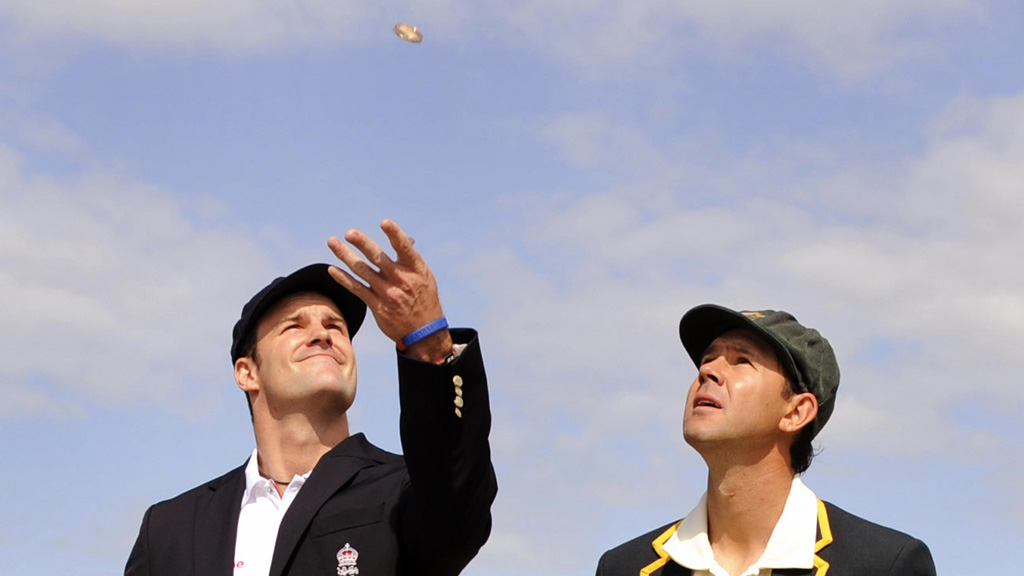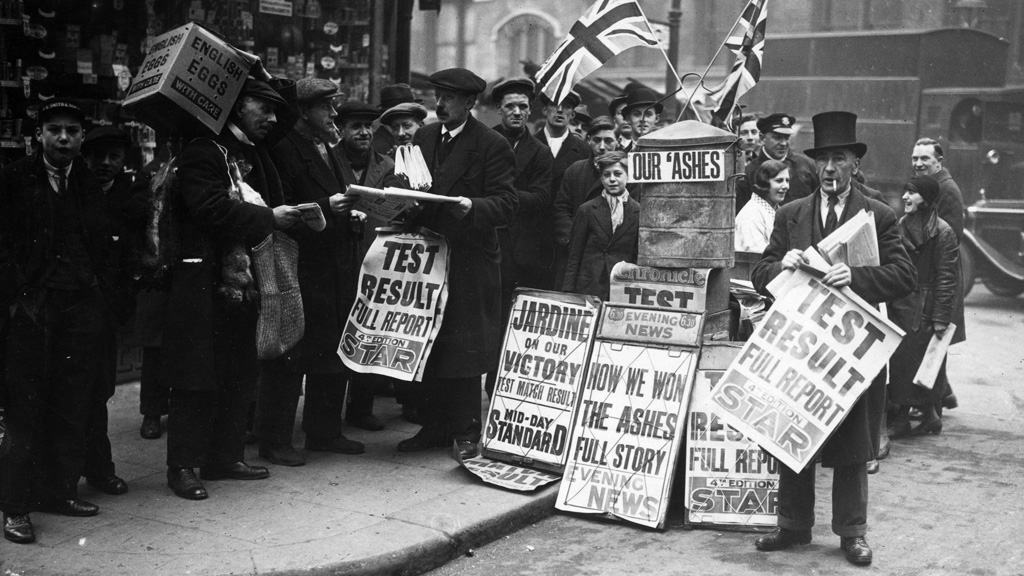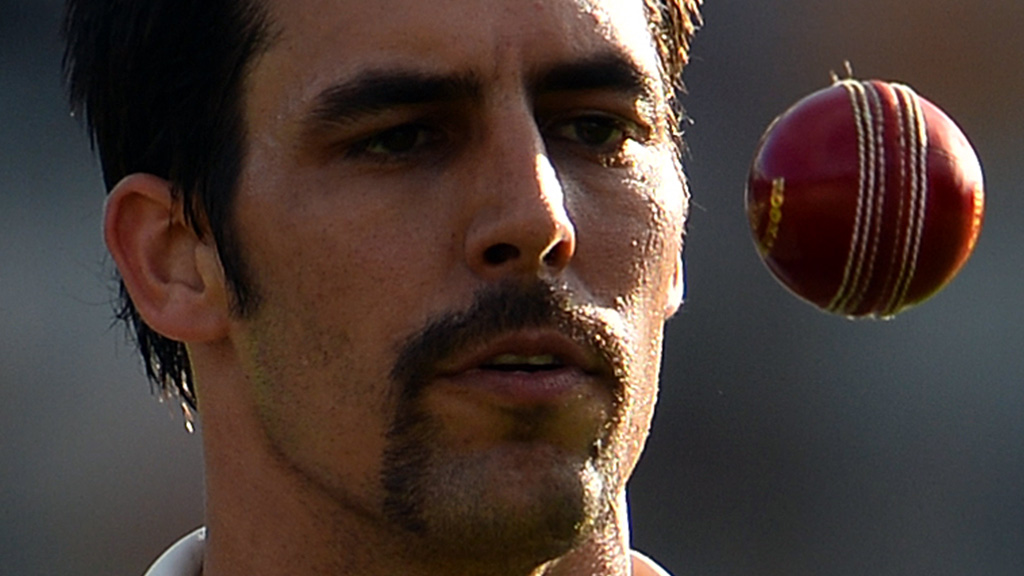Ashes 2013-14: how England can win in Adelaide
Battered in Brisbane, how can England bounce back in the second test? Simple: by reading the Channel 4 News five point plan.
Boss the toss

Above: England captain Andrew Strauss tosses the coin with his Australian counterpart Ricky Ponting on the first day of the first Ashes Test match in Cardiff, on 8 July 2009.
Sure, fate plays its hand here, but let’s be honest. England cannot expect to win a test match and break Australia’s momentum if the home team are allowed to set the terms from the off.
In the last six Ashes tests the team that won the toss has not lost. The same holds for the last 13 Tests England have played overall.
The right side of the coin is that vital. Call it correctly – or face the consequences.
Take heart from history

Above: a newspaper vendor selling the latest edition, with the news that England have won the Ashes, 16 February 1933.
England are one down in the series, but they’re no strangers to this situation. Recall July 2005, where Michael Vaughan’s XI lost the first Ashes Test at Lords, fell one-nil down in the series and were written off.
With the greatest respect to Mitchell Johnson, those days saw England face a venomous bowling attack of Glenn McGrath, Brett Lee, Jason Gillespie and Shane Warne.
England played out of their skins in Edgbaston, and clawed back to a win – subsequently winning the series.
Since then England have engineered equally remarkable recoveries in India (lost in Ahmadabad, came back to win the series 2-1), Sri Lanka (lost in Galle and bounced back in Colombo to square the series).
In fact, during Andy Flower’s time as coach, Pakistan are the only team to beat England in two consecutive tests.
Make no mistake, then: in order to win this week there is only one team that has to make history: Australia. England, are on the right side of it.
Seize the high ground on sledging

Above: Kevin Pietersen ignores some sledging from Australian fans during the first 2013 test in Australia.
OK, so Jonathan Trott has departed with a stress-related illness. David Warner speaks of “scared eyes”. England have encountered hostility on and off the field and it feels like the whole of Australia is baying for your blood.
England should ignore the macho posturing, and instead take heart from how the Jonathan Trott incident was received at home. Rather than ridicule, it fuelled an unprecedented outpouring of sympathy and good wishes that show how far attitudes towards cricket and mental health have progressed.
In fact, with Marcus Trescothick and Michael Yardy speaking of their own struggles, England are leading the charge on mental health – something we simply could not say six years ago.
The Trott saga also fuelled incisive analysis from the likes of Michael Atherton, Mike Brearly and Martin Crowe that has tempered this series with a mature sense of realism. Trott’s departure may be a setback – but it is also a spiritual and emotional reality check.
England should ignore the Aussie banter, seize the moral high ground, and play on.
Beef up the bowling

Above: Ian ‘Beefy’ Botham bowling at Lords in 1990
Now to technical matters: firepower. With Mitchell Johnson appearing to have put the frighteners on the England, now would be the perfect time for England to introduce some artillery of their own.
Unfortunately, underwhelming performances from Steven Finn and Boyd Rankin in a practice game in Alice Springs have made their selection impossible for such a crunch game.
So England will consider picking Tim Bresnan instead of Chris Tremlett. With Stuart Broad and James Anderson, he would offer further pace as a first change seamer.
Spinwise, Graeme Swann’s performance was patchy in Brisbane, but he’s world class enough to come back. Plus the Australians will want to go after him. But he has enough gumption and experience to rise to the challenge. Wickets will fall. England will just need to make sure to hold on to the catches.
Dismantle the Mitchell Johnson myth

Above: Mitchell Johnson tosses the ball during the first test at the Gabba.
“He’s not bowling to the left, he’s not bowling to the right. He’s just bowling fast,” said one commentator at the end of the Brisbane test. The Barmy Army have since gone silent. England are seeing headlights.
Neither need worry.
Johnson’s bowling was no faster than 95 miles per hour, with four out of six dead straight balls at best. Good he is, Glenn McGrath he is not.
With Trott at home, England should resist the urge to tinker at three. However appealing the idea of playing Joe Root there, Ian Bell should take the spot. He’s done so before – most notably during his return to the Ashes in 2009 where he played Mitchell Johnson fearlessly.
Most of all, England cannot afford to be three wickets down without a significant total on the board. This is no time to experiment.
Will the plan work? Tell us at @channel4news.